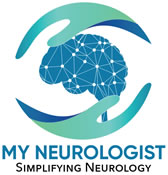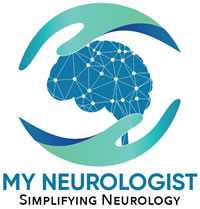The term paranoia means irrational (not real or realistic) thinking of a threat, or conspiracy, which can create fear, nervousness or an uncomfortable feeling. People having this type of thinking are convinced that something or someone (e.g., a family member or boss) is trying to “get them,” harm them, intrude on their privacy, or plotting against them or their family. We all can occasionally have such feeling depending upon the circumstances, but then we analyze the situation in logical manner, take care of any realistic risk, and go on with life. In a way, it is a defense mechanism that helps us stay safe and keeps our family safe. The problem occurs when this feeling is excessive and gets out of hand. People with paranoid disorder have difficulty controlling this feeling resulting in its multiple negative effects. It may result in social isolation, broken relationships, illogical decisions, and inappropriate actions, which may end up causing more harm than good.
What are some examples of paranoid thoughts?
. A feeling that someone is trying to take advantage of you, hurt you or steal from you.
. A feeling that people are staring at you or talking about you or judging you negatively
. A feeling that people are using flashlights to spy on you, while they are just driving by
. A feeling that neighbors are spying on you
. A feeling that the spam calls, and spam digital messages are codes to spy on you
. A feeling that the government or an organization is spying on you
. A feeling that medicines or vaccines are always harmful
Is paranoid behavior a disease?
It is not defined as a disease by itself, it is a symptom that may occur in many conditions.
Why do people have paranoid behavior?
The root cause of this behavior is likely a malfunction of brain’s electrochemical circuitry for thought processing. The exact location and nature of dysfunction is not well defined. Due to genetic and environmental factors, some people are more at risk of developing paranoia than others. In young age groups (teens to 30s), it usually is a part of underlying psychotic disorder, PTSD or from drug use, and in elderly, it usually is from dementia.
What conditions are associated with paranoid disorder?
There are many conditions that may have associated paranoid behavior or paranoid disorder. Some are as follows:
- Psychotic disorder, like psychotic depression or schizophrenia
- Bipolar disorder
- Personality disorder, the paranoid personality disorder
- Dementias
- Stroke
- Huntington disease
- Severe insomnia
- Severe social isolation
- Drug abuse and its withdrawal
- Certain medicines or their withdrawal
- Other brain diseases, like encephalitis or tumors
- PTSD
What should I do if I have paranoia or if my family member suffers from it?
Talk to a medical professional. Start with your PCP. You would likely be referred for psychotherapy. The important thing is to find out the likely underlying cause of paranoia so that proper treatment can be started. Depending upon the age and associated symptoms, you may have to be seen by a psychologist, psychiatrist or a neurologist.
How is paranoia treated?
It is treated by a combination of measures. In mild cases, psychotherapy (talk therapy) and cognitive behavioral therapy can be useful. In more severe cases, a medicine might be needed. Paranoia is treated with anti-psychotic medicines. Patients with paranoia may also need treatment for anxiety and depression.
Are medicines for paranoia effective?
Anti-psychotics are reasonably effective in controlling paranoid thinking. The choice and amount of drug needed depends upon number of factors, more importantly, age of the patient, associated medical illnesses, and the severity of symptoms.
Do anti-psychotic medicines have side effects?
Anti-psychotics are serious medicines, and they can have serious side effects (especially in high doses), or in elderly (can be fatal). They are used only if needed (failed psychotherapy or non-medicinal measures), and to improve patient’s quality of life. Patients who require this type of medicine, have significant paranoia affecting their personal, family and social life. Despite their risks, careful and intelligent manner of prescription (individualized to every patient) can be reasonably effective.
Where can I get more information about depression?
American Psychiatric Association
National Institute of Mental Health


Leave a Reply
Your email is safe with us.
You must be logged in to post a comment.